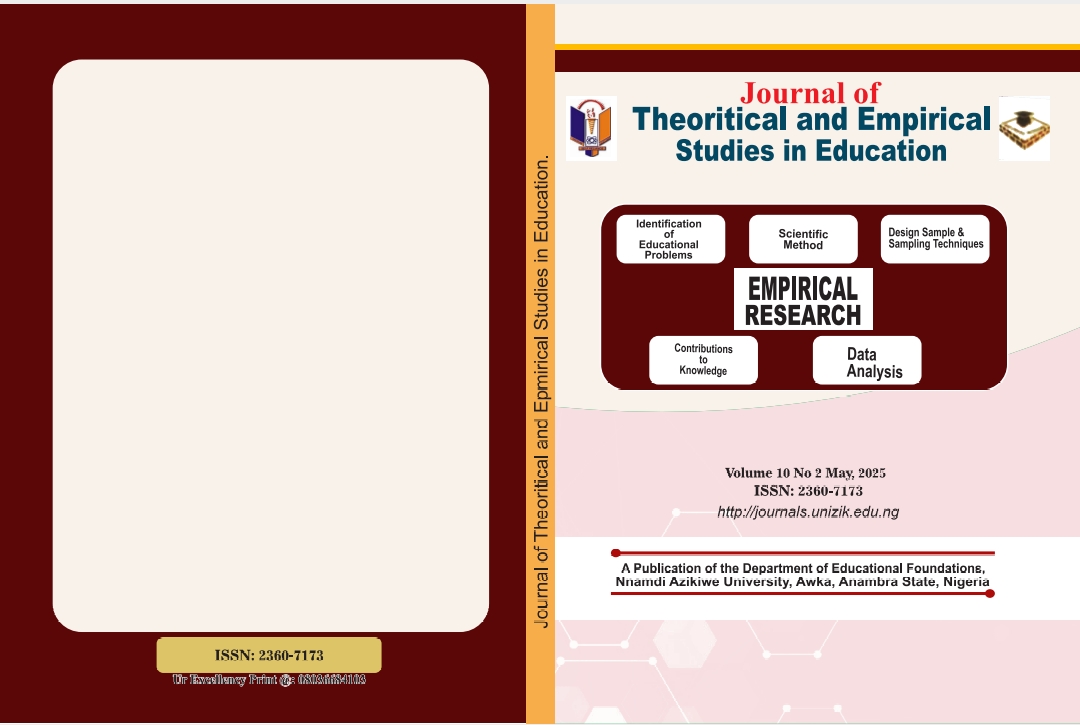Effects of Self-directed and Social Collaborative Constructivism Instructional Strategies on Junior Secondary School Students’ Academic Achievement in Basic Science in Adamawa State
Keywords:
Constructivism-based Instructional Activities, Junior Secondary Schools, Academic Achievement, Basic Science and Technology.Abstract
The study explored effects of self-directed and social collaborative
constructivism instructional strategies on junior secondary school students’
academic achievement in basic science and technology in Jada Local Government
Area of Adamawa State. A 3 x 2 quasi experimental design with intact classes
was adopted. Simple random sampling technique was employed to select 105
Junior Secondary School two students from three schools in Jeda Local
Governments, Adamawa State, Nigeria for the study. Participants were randomly
assigned to conventional lecture, self-directed and social collaborative
constructivism instructional activities. The treatment lasted for 8 weeks. One
main instrument was developed by the researchers, validated and used; Basic
Science and Technology Achievement Test (BSTAT, r = 0.86.). Two hypotheses
were raised to test the significant difference between lecture, collaborative and
self-directed constructivism instructional strategies activities in basic science and
technology and significant difference between gender and students’ academic
performance in basic science and technology in selected concepts. The two
hypotheses were tested at 0.05 level of significance. Data were analysed using
mean, standard deviation, Analysis of Covariance (ANCOVA) and t -test
analysis. The study revealed that there was significant difference in the students’
academic performance between students exposed to lecture, collaborative and
self-directed constructivism instructional strategies. The finding also indicated
that there was no significant difference in the academic performance of male and
female students It was therefore recommended that basic science and technology
teacher should be encouraged to promote academic achievement of learners by
involving constructivism-based learning activities.




